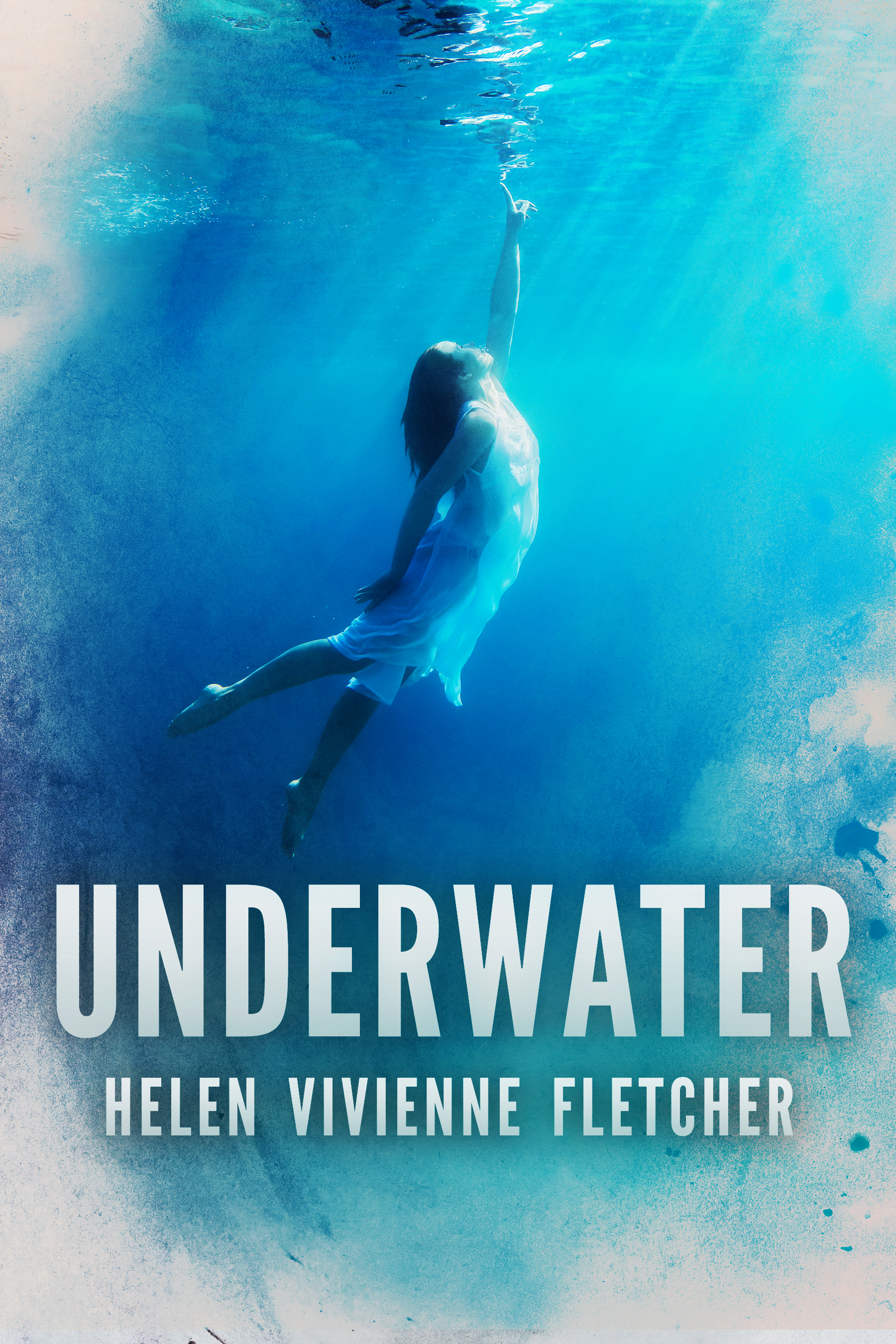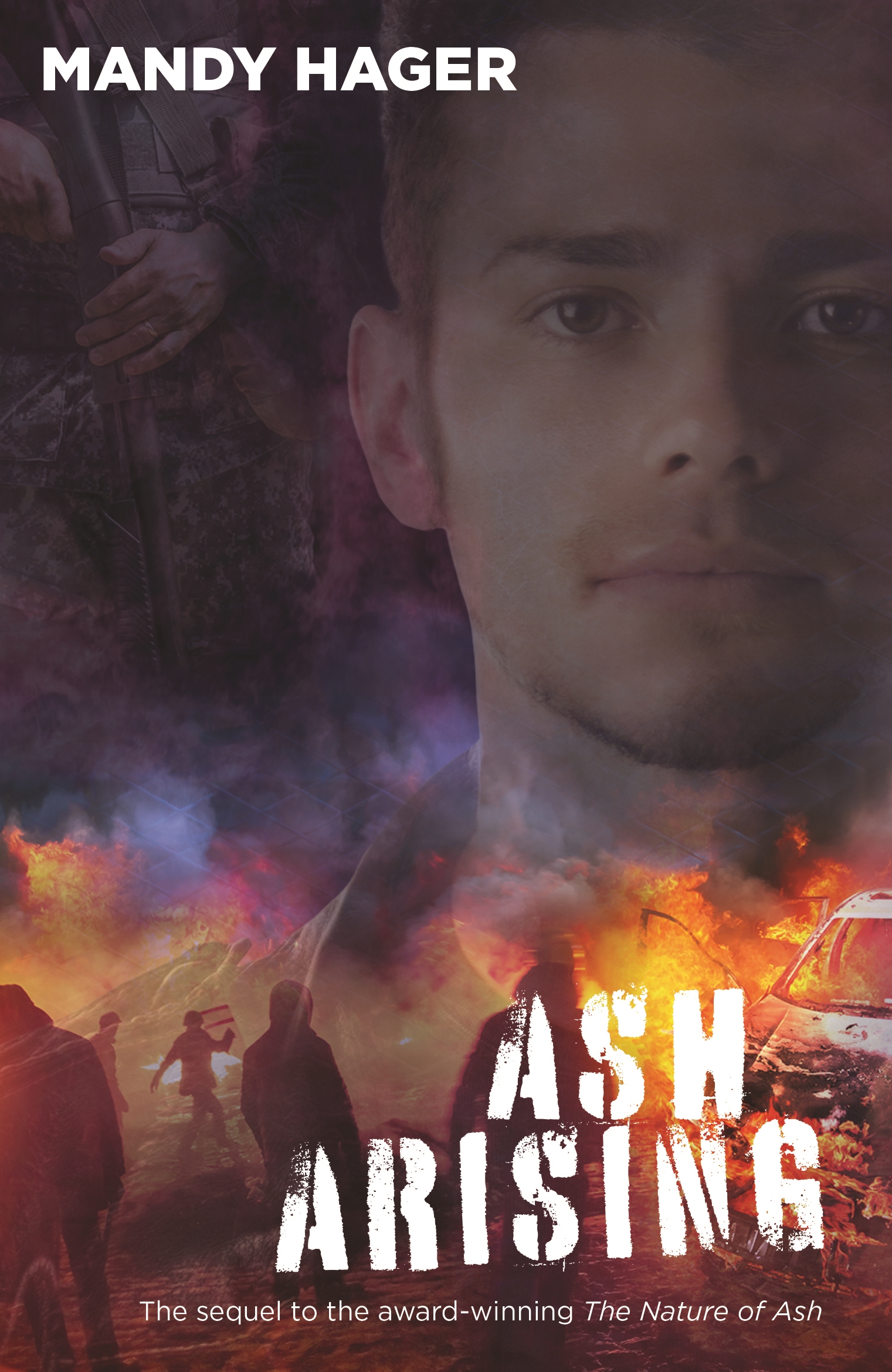Mandy Hager and Helen Vivienne Fletcher are both Wellington-based writers of YA and other things. Sarah Forster was excited to read Fletcher’s second YA publication, alongside a long-awaited sequel to The Nature of Ash from Hager.

Underwater, by Helen Vivienne Fletcher
On its surface (see what I did there), Underwater is a simple teen holiday resort drama, like the ones I recall devouring as a ten-year-old. But deeper down, it is a very well told story of a family trying to put the pieces back together after an unimaginable loss.
Sixteen-year-old Bailey and her seven-year-old sister Tilly are at Pine Hills Resort for a summer holiday with their grandma. We meet Bailey as she is sitting at the side of the resort’s pool, wishing she could get in with the others. She is a natural swimmer, and loves the water, but something is stopping her. She meets the eye of a boy in red trunks, sitting on the other side of the pool. ‘It was strange. Everything seemed so fast here, so frenetic, but he was really still. I watched him, feeling some of the calm rub off on me.’
His name turns out to be Adam, and he has a younger brother as well, which means they see each other at the playground most days and soon become friends. But he is one of the group of teens who have been coming to the resort for a decade – you know the type, those people that go to the same place every year to holiday together. And he used to be with a girl called Clare. Clare has a few issues.
Cue teen drama, romance and the joy of new friends. Underwater is written in the first person, something Fletcher is very good at, achieving the perfect tone for her teen voices. At no point does it seem as though Bailey is anything other than a teenager, despite her family situation. The characters include Clare as the manipulative camp bitch, Amber and Jenny who are secretly together together, Freya as Bailey’s slightly nerdy but kind roommate, and some peripheral teen characters. Clare is fleshed out as a character, but needed just a little more motivation for me to understand her actions entirely.
Underwater is written in the first person, something Fletcher is very good at, achieving the perfect tone for her teen voices.
At the beginning of each chapter, in italics, Bailey talks a little of her memories of life before, and as we carry on through the book, we begin to get the story of what happened to her family, told in italics. The tension is beautifully held by Fletcher, you are pulled tightly through the novel to the point at which the event which I can’t tell you about is finally revealed. At first, the big reveal seemed too early, but this makes sense in the wider story arc and I really enjoyed the ending.
Underwater has some pithy phrases as well – this made me chuckle while sitting on a bus: ‘I’d had hard-core meat eaters get pissy about the vegetarian thing before, but Clare made it feel like she might actually turn cannibal to prove her point.’
Bailey is a relatable and sympathetic character and I really enjoyed Underwater. I’d recommend it for kids aged 11+, just be aware there are descriptions of extreme violence and PTSD.

Ash Arising, by Mandy Hager
There were so many arrests, shootouts, explosions and downright dirty tricks in this book, that at times I felt my head was spinning. But Mandy Hager was in control the entire time.
At the end of The Nature of Ash, the first in this series, Ashley McCarthy had exposed the government, led by corrupt Prime Minister Bill Chandler, as pawns of world super-powers the WA (Western Alliance) and the United People’s Republic (UPR). The two powers are working to increase the wealth of the One Percenters, at the expense of everybody else in the world. But it’s weeks later, and the Opposition has not yet moved to displace the government. As this book begins, Ash, his Down’s Syndrome brother Mikey, Travis, Jiao, Lucinda his lawyer, and others are hiding out in Whanganui at an ex-UPR operated farm.
The authorities are sent by corrupt PM Chandler to get Ash, using threats against his brother and dementia-afflicted grandma to get him into custody, then torturing him to give them what they want – absolution for the deaths of his parents. As all seems lost, Sovereign Aotearoa stages a jail break with the aim of getting Ash to front their xenophobic, violent faction, as a face the public trust while they are breaking the government down.
If I go any further in explanation here, I’m going to be revealing spoilers, so here are the broad themes. Ash is young and notorious, and Hager has a really strong handle on exactly what this means. Ash knows more than most people with fingers in the pie, and he constantly has dilemmas over whom he can and cannot trust. He has his core group – Travis (mate), Lucinda (lawyer), Jeannie (Travis’s mum, until recently a Policewoman), Jiao (friend and carer for his brother), his uni friend Hayden. And his main concern is his brother Mikey. No matter what, Mikey comes first.
Ash is young and notorious, and Hager has a really strong handle on exactly what this means.
Ash is constantly being pulled in a dozen directions, and the novel’s tone is extremely tense. But there is still space for humour in the narrative. Here’s an example, as Ash meets the neighbour of the house he is hidden in.
‘Hi, I’m Gerald Northcote. Next-door neighbour. Born and bred in this very suburb seventy-eight years ago – yesterday, actually!’
What is it with old people? They broadcast their age like they’ve personally duelled with Death and won.’
Gerald turns out to be pretty handy actually, as a former Human Rights Envoy to the UN. There is a lot of kind humour around Mikey’s behaviour too, but he is always exceeding Ash’s expectations.
This entire book is set in post-catastrophe Wellington, and Hager’s descriptions of what Wellington has come to are heartbreaking. Her style is a mountain of detail – this describes how people are living on the waterfront, thanks to the economic bust: ‘Plastic, cardboard, tarpaulins, corrugated iron, scrap timber and all sorts of other random building waste is strung between lampposts, sculptures, buildings, trees, bench seats, anything that’ll hold, each shelter crammed to overflowing with the belongings of those who’ve lost their homes and missed the chance to flee…’
Hager’s writing is masterful. She keeps the tension taut throughout, controlling the chaos of explosions, gunshots, kidnappings and more. She makes her moral points and she kicks the world’s arse for letting things get so bad. You can’t help but watch in awe.
Read this book. You’ll see what I mean. As you’ve probably got from all the mentions of violence above – probably best for 13+, unless you think your preteen can cope with the total disintegration of the status quo. (and lots of explosions). While the action in this book stands alone, it would help to have read the first book back when it was published at least.


Sarah Forster has worked in the New Zealand book industry for 15 years, in roles promoting Aotearoa’s best authors and books. She has a Diploma in Publishing from Whitireia Polytechnic, and a BA (Hons) in History and Philosophy from the University of Otago. She was born in Winton, grew up in Westport, and lives in Wellington. She was a judge of the New Zealand Book Awards for Children and Young Adults in 2017. Her day job is as a Senior Communications Advisor—Content for Te Herenga Waka—Victoria University of Wellington.



